|
Listening to music doesn't have the same appeal that it used to when I was younger. I feel, as I get older, that music is an intrusion on my sense of self. Where once it was the soundtrack to my emotions, now it is a bombardment of noise demanding I pay attention.
And I want to pay attention, but my ears don't want to hear. Perhaps I have gained a great deal more sensitivity towards sound volumes - understandable, to some degree; although, some grow less sensitive as they continue to gain hearing loss. I have not sustained a great deal of hearing loss from my days as a solo acoustic musician and a rock/metal guitarist. While I was working as an assistant book-buyer in Highland Park Paper Plus, I noticed my ears becoming extremely sensitive to the sound of coins dropping against one another in the till, to the sound of trolleys clanging against one another in the supermarket next door, to the point where I felt like I was in immense pain from these noises, and I began wearing cotton in my ears to reduce the decibels, otherwise the extreme sensitivity I was experiencing would bring a great deal of stress. I was also going through the lowest point of my clinical depression at the time, which may have have been a potential cause. Regardless, I had spent years hunched over my acoustic guitar with my right ear being pummelled with sound waves. Years later, after moving from Auckland to Invercargill, and the rock/metal band I was in drawing to an end, I had a hearing test done and it turned out that the hearing loss I did have was negligible (that's approximately 7 years of wearing hearing protection by plugging my ears with cotton in every day!). What I was experiencing, I was told, was 'in my head'. This was somewhat of an unbelievable statement. Years of hearing sensitivity was just something my mind was conjuring? The audiologist suggested that I would simply have to work on getting used to normal levels of sound again. I went back to my flat, mind reeling from this news, heart beating with anxiety at the thought of having to suffer through this excruciating pain all over again; but within a week of not wearing hearing protection, I was starting to get used to normal sound levels again. Like a lot of musicians, I also suffered tinnitus. I have made efforts to reduce noise levels to assist with the reduction of tinnitus, and over the years this has reduced also. Since 2018 when I moved into my car, I have sought peace and calm along riversides, through forestry tracks, and over ranges, searching for those peaks or rapids where I can rest and enjoy the natural sounds around me. Music isn't natural. It is a constructed sound put together by humans. It is my firm belief that animals do not make music. Even birds. We liken their calls to music because we can pitch them to a musical scale, but we can also pitch construction machines to a scale as well - but we don't! (as far as I know no one has, but to be fair, someone probably has!). If birds make actual music, it is unknown to us; we can only hear what they produce and interpret it as music. But music is something that we humans put together out of natural sounds that can be produced. We force these pitches together with rhythmic impulses, and music is born. Rock music has a noise quality to it - loud for the sake of being loud. Electronic music is produced into digital loudness. Compression destroys all the highs and lows. I first started turning away from loud rock music, but many a morning I have woken up and while driving to my job, have not even wanted to listen to my beloved Mozart. The silence of morning. The rumbling of the car engine, the scraping of wind against the windows - all these are noise enough. I was once accused of being someone who listens to music as background (my god! I don't know how anyone could accuse any musician, let alone someone who has written 200 songs, performed acoustic and metal music, composed for orchestras, and listens to all the best music from all but 2 genres, of being someone who listens to music as 'background'!). I have studied Mozart and Beethoven scores, I learned almost every Led Zeppelin song, learnt every song on Undertow by ear - music has never been a background, and it never will be. I have to HEAR music. I have to hear what's going on - what those flutes are playing over the violins, what the bass is doing when its not following the six-string guitar, what drum patterns are being played as a contrast: all the counterpoint and interesting harmonies will forever fascinate me. Whether it's Mozart or Tool, what those musicians and composers are doing to make music will always bring an interest beyond just the emotional moment that got me first listening to the piece. But if I don't want to hear noise, I turn music off. All of it. Because even Mozart, performed by the greatest orchestras ever, is still a noisy presence when I just want as much quiet as I can possibly find. In the city, where noise reigns supreme, unwanted sounds must be matched with wanted sounds: this day I may want to bring Helmet up on the stereo and help block out those other intrusions, or maybe Page Hamilton's riffs just fit with this day's city-mood; this other day I may want Beethoven's 6th Symphony to bring me some joviality while I drive through the centre of town. But when I am down on the riverside with water passing through rapids, cicadas in the bushes, swallows dipping and diving, and the occasional cow mooing for attention over in the paddock, the last thing I want is someone to bring constructed sound into the mix. Not even Delius, who of all the composers feels the most 'natural', because even his music is constructed from constructed instruments. And that which is constructed doesn't fit naturally into the landscape. Let these noises be still, And let those voices born from the earth have their say. I will listen, And let this peace momentarily reign.
0 Comments
Come and sit in my chair – this seat is warmed for you. The cold plastic has no cushion but it has the long-seated warmth of loneliness – a time-honoured tradition of looking out the window and wondering what to write.
Come and sit in my chair and watch the world rotate through collective memories, the recycling of the past to renew the present. The ghosts of our former masses have risen from their bodily graves to haunt our waking days. Come and see the sorrow pretend to be new; come and see the complaints pretend to be virtue; come and see all hopes rise from the same grave that our ghosts rose from. Come and watch the sparrow falling into laughing leaves and whispering death trivials on a staged renaissance. Autonomy is not spirit. Autonomy is living. Autonomy is trudging up a hill raising the flag of independence to bitter winds that carry your voice across empty oceans. * * * Mr Aghast, come sit with me. Here are the keys to your future, this loneliness of being. Are we two afraid of dying, or are we just afraid to stop living? How addictive is this breath of life – it never wants to give up, even when thoughts think otherwise. I slumber onwards, head sunk low, trapped in walls. I miss the stars. By the end of October, 2022, I had returned to the freedom camping domain where I originally parked up in May prior to heavy rains closing the domain and I moving into a caravan for June and July while working before house- and animal-sitting for the couple whose property the caravan is on. The domain is a fantastic open space with two long-drops and 4 rubbish bins, and doubles as a night star-gazing location for any astronomy enthusiasts (though I have never seen any turn up). When I originally returned a month ago, I walked down to the riverside that runs alongside the Great Taste Trail for cyclists (mainly) and found a perfect spot to build a campfire: two stones adjacent to each other (or one stone broken in half!) that created a gap in which I could drop sticks and twigs into that would boil my water in the morning. Here would be my new spot for a fresh cup of coffee every morning (weather permitting). And it was made so. Annie's Park, 2018
Wai-iti River, 2022 By the end of 2018, Annie's Park had changed: Rains had come and gone, the river had risen and swept my campfire away, someone had come and stolen my dish-washing liquid and similar items while I was in town (immortalised in my poem 'Liquid Dish-wash Thieves' from The Tasman Journey), a council member had driven 10km out to where I was and questioned me about living in my vehicle, despite the fact that the park had no official council designation and the 'no camping' sign had been put up by a man across the road who lived right next to the man who actually looked after and named the park in honour of his mother and whom I had approached when first arriving and told him what my plans were, of which he had no problems with, and neither did any of the other surrounding neighbours in the community who I met! My life moved on as well, as I met a woman and we started our own adventures together, travelling south (forthcoming poetry & prose collection Two Left Feet), and then North to do house-sitting. When that relationship ended, I stayed in the North Island for some time working to gain funds for my distribution drive of The Tasman Journey, only to have that interrupted on my way back to Tasman by The Kapiti Coast last year (of which makes up the entire second half of what will be my third collection of poetry & prose, currently titled as A Crook in the Elbow). I revisited Annie's Park and it still felt welcoming (apart from the sandflies), but it was time now to be somewhere new, and Wai-iti Domain was that place. The walk to the riverside, however, is, at least from where I park my car all the way over on the other side of the domain, about 120-200 metres away, and it seemed a bit of a distance to take all my cooking gear and food for one cook-up and then return. So my first two campfires served as morning coffee trips. What happened to the first campfire? Ahh, the first campfire. Nature happened to it [fig. 6]. But I did not fret! When the rain ceased, and the river lowered, I went back looking for anything that might remain. I did find one rock still showing the sooty burnt face, and so, I set about rebuilding. And then the council interfered [fig. 7] and left a wake of destruction right where my campfire had been [fig. 8], and all for the sake of reinforcing the opposite side of the bank that time will eventually erode away regardless. Disappointed as I was, I did not give up. And I built a third fireplace, even better than the first two, and even better than any of the ones I attempted at Annie's Park. Once I had spent a few mornings making coffee on the riverside, I took my grill down and set up a cooking spot, and now I pack a frying pan (first one that replaced the original fry pan from fig. 1) into the same bag that I store all my collected sticks and broken branches, hand axe, paper rubbish, and matches in, and make my way down for an evening meal watching the sun fade into clouds on the horizon....
In 2013 I published online my first completed novel I am the Local Atheist set in Invercargill ("the arsehole of the world" according to either Mick Jagger or Keith Richards after visiting in 1965 on a tour). It tells the story of David, a young Christian man who was kicked out of his church and abandoned by his friends, and who proceeds to seek a new life with new experiences outside the comforting walls of a church community. In doing so, he meets Lucas, a young man of similar age who experiences life on his own terms with the goal of fulfilling his own ego - not those of anyone outside himself, or some imaginary higher being. This influence allows David to see himself in radical new terms beginning a transformation that breaks down the walls that were previously surrounding and inhibiting his actions. This new edition began last year after publishing and distributing my first poetry book The Tasman Journey - a successful endeavour that planted it in independent and franchise book retailers all across the North Island, as well as Page & Blackmore in Nelson. This independent distribution being done by myself from my own car, travelling from city to city, stopped when I stopped in the Kapiti Coast last year for a winter retreat and working to earn some more financial backing (first on Transmission Gully Motorway drilling and delivering bitumen samples, and later as a Gardener at a Retirement Village). The idea for a new cover began as a pencil sketch in my sketchbook, but when passing a church I suddenly realised the front and the angle I was looking at it from both replicated with close similarity to the idea that was in my head, so quickly got out the cellphone and took some sample photos. The final design: Currently the final proofing is being done for the text file, and soon the book will be printed and available to purchase online from this website before seeking wider New Zealand Distribution.
9:52AM
Here I am on the Sign-in Gatehouse manning the Arrival Time-in/Time-out sheet. There I was about an hour ago having a deja vu. It felt like a premonition of being here and being asked to stay on this job. I was awoken at 4:40 by my alarm playing the Allegro from Mozart’s Piano Concerto No 6, a light and fluffy rise to the morning, less brutally cold than other mornings, and time enough with 40 minutes of travelling to arrive at this destination before 6 o’clock. I cannot pull out my laptop on the civil construction site like I can now. Even if it has taken four hours to catch up on all the names that need to be ticked off after the vans, utes and cars coming up and stopping for my window to slide open, me trying to scribble down their names with their time of arrival, and then to find on the Time-in sheet afterwards, it is still a welcome change from labouring around concrete and machinery. I brought books with me also. I have done one set of 21 press-ups, 9 pull-ups with my boots on (leg-ups combined). I cannot do these on the site, unless we are in a waiting mode (press-ups, yes, but chin-ups I’d have to find a scaffold area). I have put on bulk. Weight is questionable, as I always seem to weigh around 65-68kg, but my stomach has definitely pushed out into a more rounded look opposed to the toned almost-abs I had last year. I keep buying shit food after work, ice creams while filling up with petrol (two in one night! (but to be fair on the ice creams - they were bloody nice!)), or takeaway hamburgers, fish and chips, and am not doing any exercise (of any consequence beyond some hard work on the site). For today, tomorrow and Monday’s stint here at the Gatehouse, I bought chocolate milk to have with my coffee, wine gums, a block of chocolate, gluten free bread with plum jam and "Everything Butter"; and I’m thinking WHY WHY WHY??? - this shouldn’t be any different from any other day. But it’s the old “eat to kill the time and boredom trap”. I won’t be bored. I have a laptop, I have books, I have vehicles consistently coming in and out needing to be registered. Truth is, I saw a toaster, a small oven, and a sandwich toaster in here when spending time with Ian on Tuesday and Wednesday to see how he did things and get a hang of the process, and my mind went crazy with thinking about the things I could eat and cook for myself while here. Yet all those things are not what I usually eat. And it would be okay to make an exception across these next few days IF I was exercising and eating better during the week. But after every dinner meal this week, I have continued eating: cheese and honey, salami, yoghurt, whatever I have that fills me beyond the point of satisfaction. Its been crazy. And I’ve had no self-control. I started bringing food to work, more to stop feeling left out while everyone around me ate than to try to curb the after-dinner eating by making me fuller through the day, but it hasn’t made much difference. It’s cold, and I want to eat to keep myself warm. If the premonition was never realised as such, was the premonition just a deja vu of the feeling of a premonition? If time is static with no past or future and only exists as a present state within the three dimensions of space, what made my brain create a feeling of deja vu in the first place? But we know that time is a fundamental property of space by the distortions created on it from gravity and speed, so how can deja vu not be a real interaction with the future? In what way has time been distorted by gravity to create this sense within myself? Because gravity is already exerting its influence on me? Would that not mean then, that I entered a time-frame that itself had remained static? Had gravity in some way stopped, or slowed time from this future state and I walked into it? What happens after that interaction to that future state? Does it remain in a temporal stasis? Does it spring forward like a rubber band? Does it fade like it was the remnants of a quantum potentiality, an alternative path that I will never know because I either took it and it came to fruition, or I didn’t take it and it didn’t come to fruition? Is that what deja vu is – a rubber band of potential futures stretching backwards and forwards as these biological brains of ours suddenly come into contact with them? It affects us because we recognise a memory, but that memory is of us living in the now. And we ask ourselves ‘how can that be?’ We do not memorise the now, we experience it, and what we remember is translated into the concept of a past. Online Services Presto Classical, a website hosting Orchestral Music products and events based in the United Kingdom, has for a number of years now, perhaps 8-9, helped me to discover many new Classical composers I had not heard of before by offering samples from CDs to listen to and providing downloads from mp3@320kbps to Hi-Res CD Quality 24K Flac files for purchasing at very reasonable prices. On top of that, record labels frequently offer discount offers of 20-30% off advertised prices for a limited time. Presto Classical has been my absolute go-to for CDs and downloads since Amazon became an extremely overpriced market place with postage often doubling the cost of a CD alone. Postage to New Zealand is a nightmare of expensive costs, and with Bandcamp and Presto Classical giving the purchaser some control over what they buy and the quality of downloads (Bandcamp can offer mp3, flac, and wav. files, depending, I guess, on the artist's own preferences), these are currently the only two online services I can recommend and continue to purchase from. As far as I know, Amazon, Gooogle, iTunes, and other streaming services etc., do not provide anywhere near the same customer orientated quality. Check out the full range of the Presto website: www.prestomusic.com/
Franz Krommer 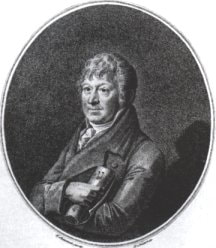 Krommer is one such a composer who I discovered through the Presto Classical website. Born half a year after George Frideric Handel before the Baroque Period of music began waning and the new form of Classical music brought on by J.S. Bach's sons sought clearer musical textures with less "business", Krommer also died 4 years after Beethoven when the period of Romantic Music had caught the wind of change and was about to become a full blown course of musical exploration. Thus Krommer lived through the entire Classical Period in which he is associated with. Quite a feat when one considers that few people lived past 50 or 60 in those days: Bach and Handel both survived into their 70s as well, but Mozart passed at the early age of 35, Beethoven at 56, Schubert 31, Chopin 39, and many commoners did not have clean and healthy living environments that the wealthy could maintain to ward off disease. Krommer has never been a composer as highly regarded as the previously mentioned, nor has he even been a composer worthy of noting by any publications - hence my never having heard of him before. But with J.S. Bach's sons leading the charge of the Classical Period, Haydn creating compositional masterclasses on how to compose in this new gallant style, Mozart capping it all off with his genius of prolific tune-making, orchestral colouring, and absolute mastery of every genre, and Beethoven pushing the Classical Period to breaking point and ushering in the heroic nature of the forthcoming Romantic Period, to be honest, any other composer of this period was hardly ever going to get a look-in. But while Krommer and his contemporaries, such as Franz Ignaz Beck, and Johann Baptist Vanhal, all live in the shadows of critical opinion, that does not mean they don't deserve to be listened to. Vanhal in particularly has many a tuneful sinfonia worth putting on your playlists. What struck me about Krommer on first listening to his symphonies was how dramatic they were, how they seemed to evoke the same spirit of Beethoven without the suffering or heroism. On further listening I thought I even heard very similar Beethoven-type phrasing and I began wondering if this might have been a composer who Beethoven borrowed from. This remark seems sacrilegious, but it is well known that Beethoven took ideas from Mozart and reworked them considerably enough that they became completely his own: Not only the 'Ode to Joy' tune can be found in a Mozart Sacred Work, but I also have picked up a very Beethoven-like episode in Mozart's 'The Abduction from the Seraglio', as if Beethoven upon hearing this Opera, or even just that Andante section of the overture, immediately thought 'That's it, that's my sound!!' and off he went composing in a similarly heavy and weighty manner. It is entirely possible. There is so much music out there going unheard, not just in the realm of orchestral music, but also in all forms of contemporary music, but if you find yourself becoming a little bit bored hearing the same Mozart and Beethoven works again and again, I can highly recommend Franz Krommer as an alternative: Not as charmingly tuneful as Mozart, and not as heroic or excessively weighty as Beethoven, the symphonies still manage to convey intensely dramatic episodes while also being tunefully appealing. I also listened to samples from his Oboe Concertos, and these few snippets were absolutely wonderful and went straight onto my wishlist for future purchasing. Check out some samples on Presto Classical Symphonies: Krommer - Symphony Nos 4, 5, & 7 Oboe Concertos: Mozart & Krommer - Oboe Concertos Enjoy! This morning I woke up to a couple of maggots falling on my head. Since I moved into my cabin, I have had one or two rats entering into the ceiling where the insulation is and possibly nesting. Frequently I have heard them scuttling about, scratching, gnawing, and occasionally squealing with antagonism at another. It is usually only one at a time, and I have thrown the sides of my clenched fist banging against the ceiling to scare them and hopefully either shoo them away or just shut them up from fright. And that was usually when I noticed much upheaval of accumulated rat droppings on the other side of the plywood where they were living. The ceiling has two 1.5x1m (aprox.) sheets of plywood over the room, a narrow skylight with two PC sheets doubled over top of each other, and directly above the bed two narrow half sheets of plywood covering that end. About a month ago, after waiting for a sunny weekend, I ripped the corrugated iron roofing off the bed end and found lots of droppings that I cleaned up, but couldn't find any obvious entry points for the rat to get in from the outside, only pathways into that area from the other area. Two weeks ago, I attacked the other side pulling off the roofing and again, finding no rats but many rat droppings. But this time, after doing some research, I sprinkled the insulation and general area with pepper, paprika, and oregano to use as deterrents while also dropping some rat poison in one of it's travel paths, and down where some of the insulation was. I think the deterrent worked, as there was no more scuttling in that larger area of ceiling, but over the bed, the rat came back. Last night I heard a rat scurrying about, but then went quiet. This morning the maggots came to visit. Now, let me be clear, I expected there to be a dead rat up there: when the weather did heat up in the afternoon the last few days, I did start smelling the distinct stench of decomposition. So, I knew that at some point I would need to get back up and clean it out. This morning was that point. Three maggots at 7:30 AM, up I got, checked my hair - clean; checked the bed - a few more maggots; cleaned these up, got a bucket and put it beneath the plywood gaps in the ceiling where I suspected they had fallen from, and began getting the tools together to go back onto the roof and pull off the roofing. This is what I found: Yay! Dead rat. Urggh! Dead rat and maggots. (I thought rats were supposed to go outside to die?)
While pulling the infected insulation out and shoving it into a big black rubbish bag, my flatmate/tenant seemed to only care about the minuscule fibers missing the bag and falling on the ground, or drifting through the air. That got me a bit pissed off since having rats in the flatmate's ceiling seems to be the least of her concerns and I replied quite angrily "right now I'm a little bit more concerned with dead rats and maggots in my ceiling." After I got it cleaned out and vacuumed I said that there will need to be new insulation placed in because I've thrown it all out. She said she'd get it herself instead of telling the landlord. But why not tell the landlord since it's his property, his housing responsibility? "I just don't want him to be too concerned about what's happening here, especially with repairs, otherwise it might tip his decision to finally sell the property." This has been her concern for some time I think, and should he sell, we are all out with nowhere to go: I return to a car that isn't running, potentially back to Tūranganui-a-Kiwa to live with my parents if I can't find a place as cheap as this to rent. With no current car running (mine stopped working about two months ago), returning to living in a car isn't much of an option: I could sleep in it on the side of the road outside the house, I guess! So currently, I live in a cabin that the tenant doesn't want to contact the landlord about fixing for fear that he'll decide to sell. This property with the potential for vegetable gardening has become her home, the house is her home, and the village we live in has become her home. I understand that dilemma for her, but I do feel at times there is a lack of compassion and concern for her fellow flatmates. If this cabin is to remain my home, then I am going need to fix it myself and block up every potential entry point for a rat to enter in through. It's not something I can rely on a landlord for, or the tenancy holder. It is my home, my responsibility. |
Details
Some updates to keep me updated. Archives
April 2024
Categories
All
|
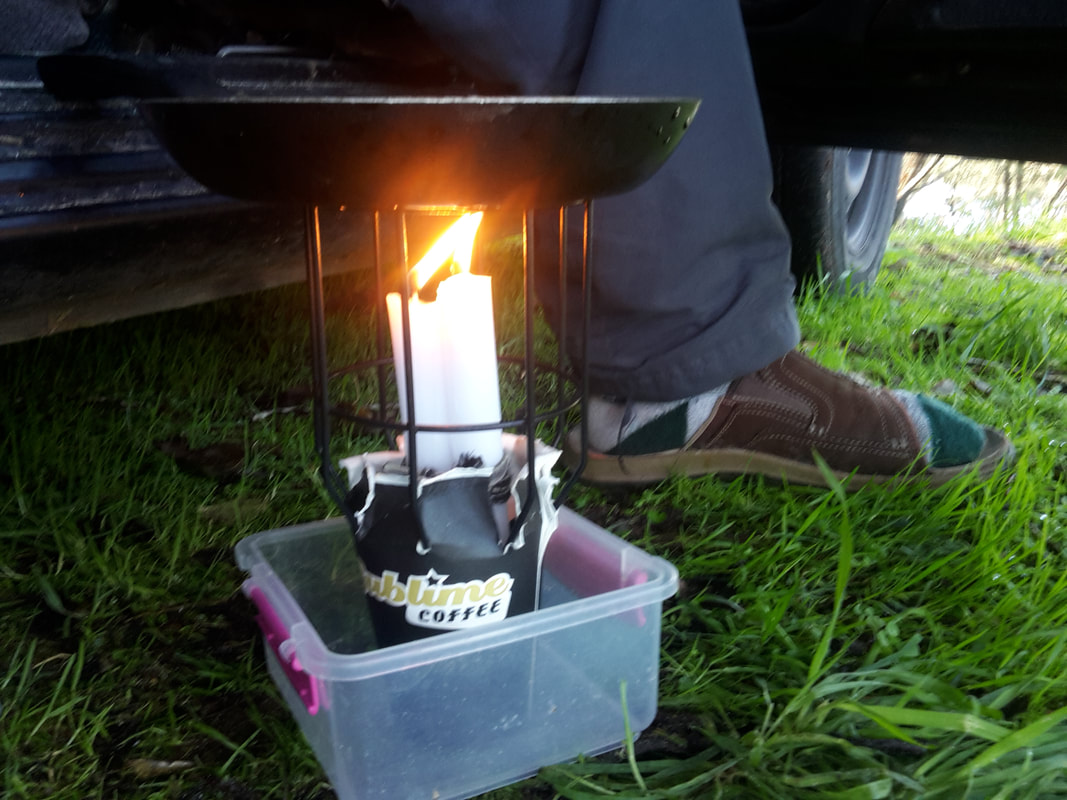
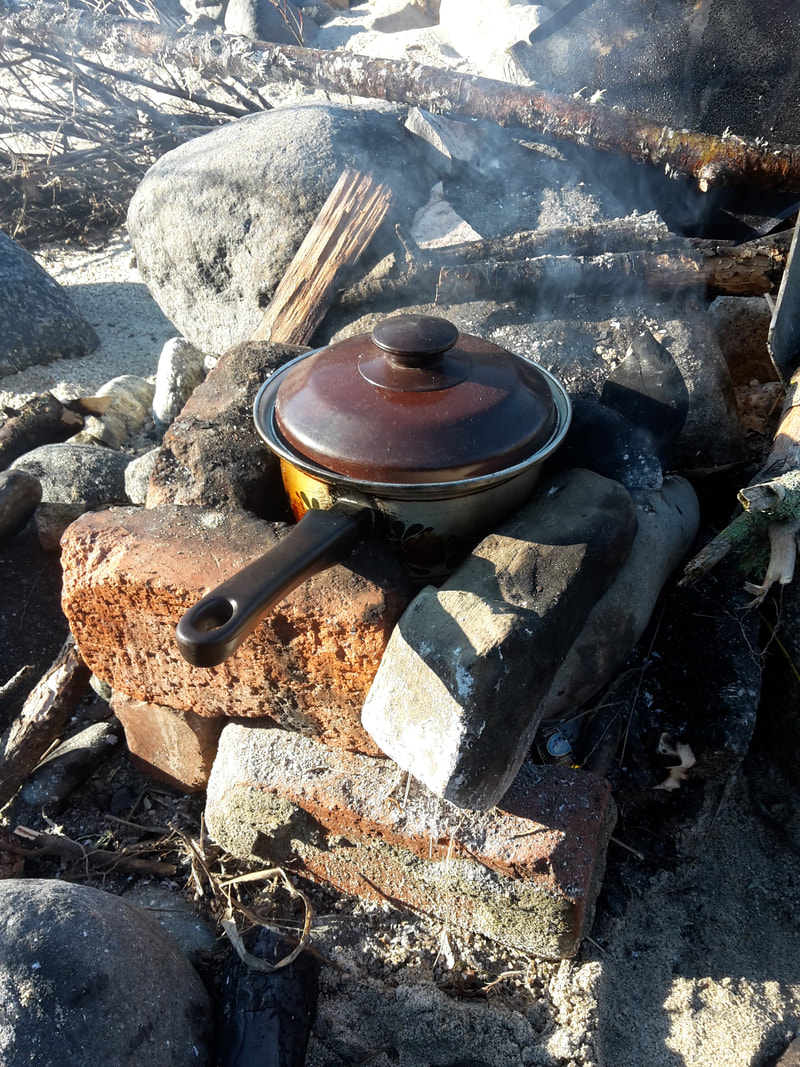
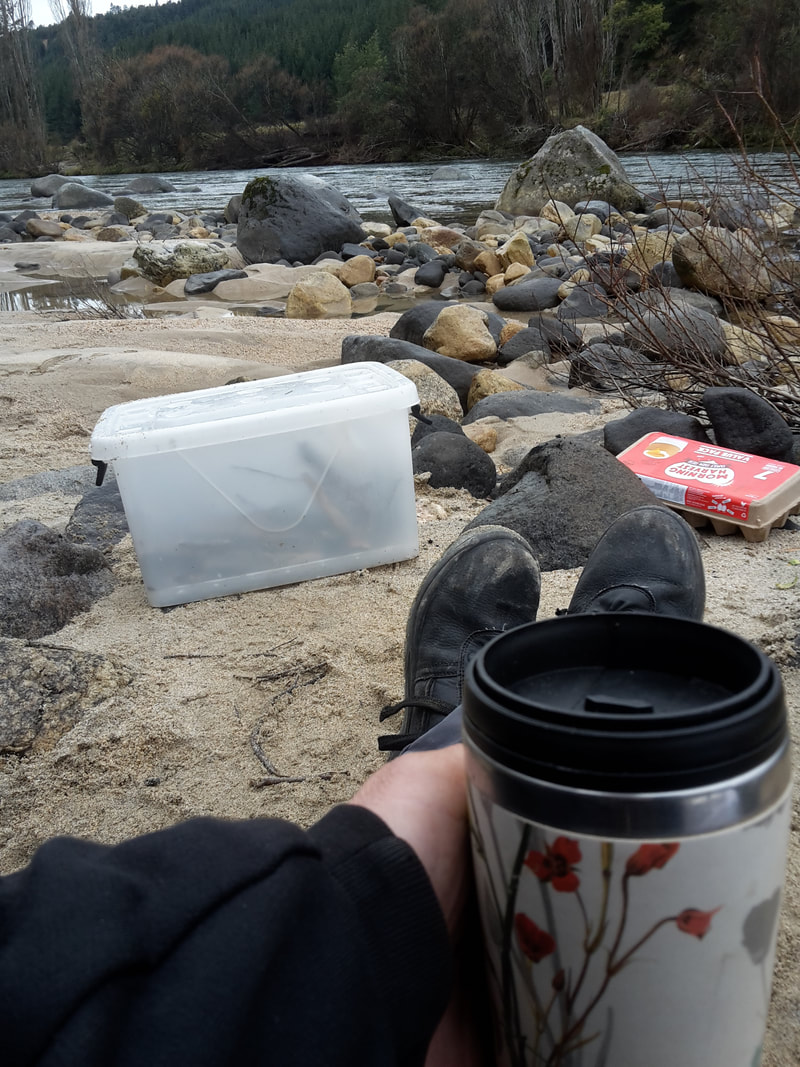
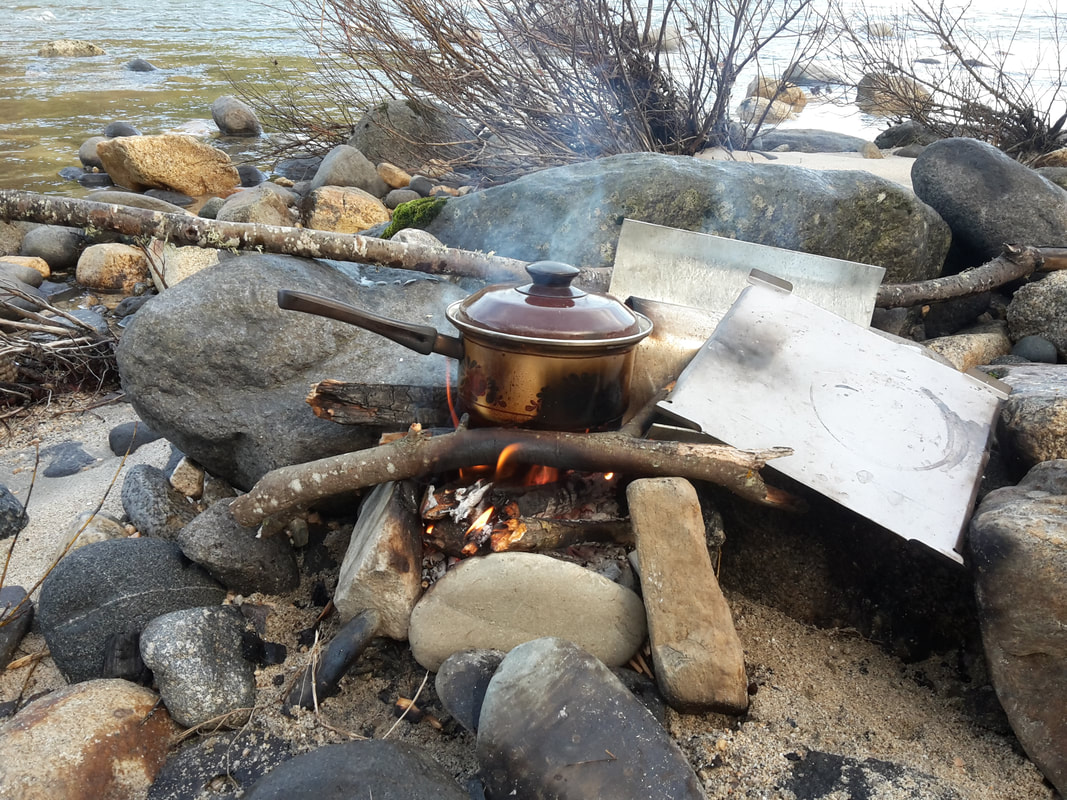
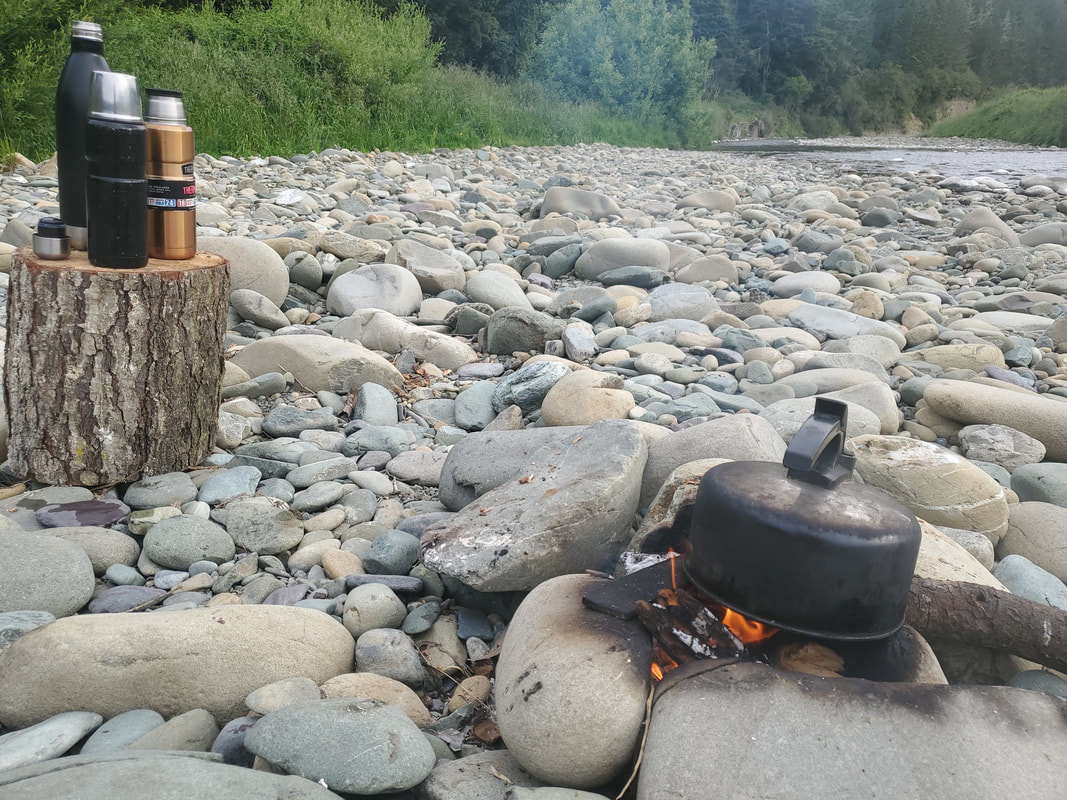
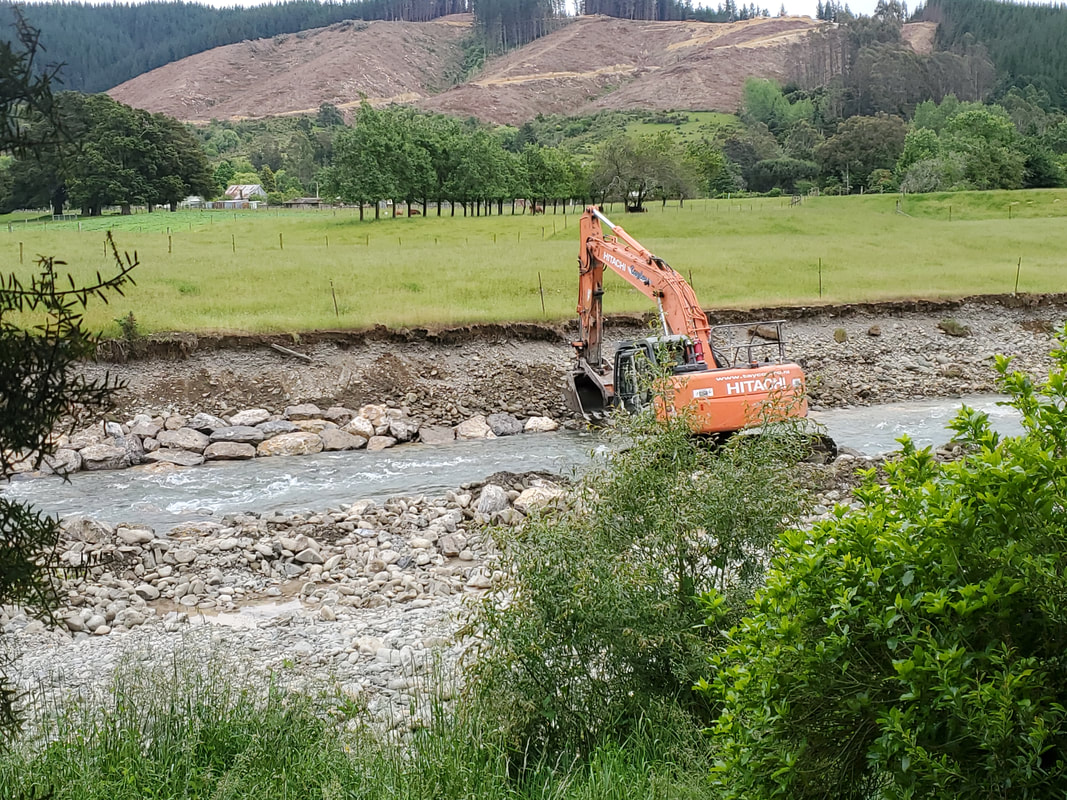
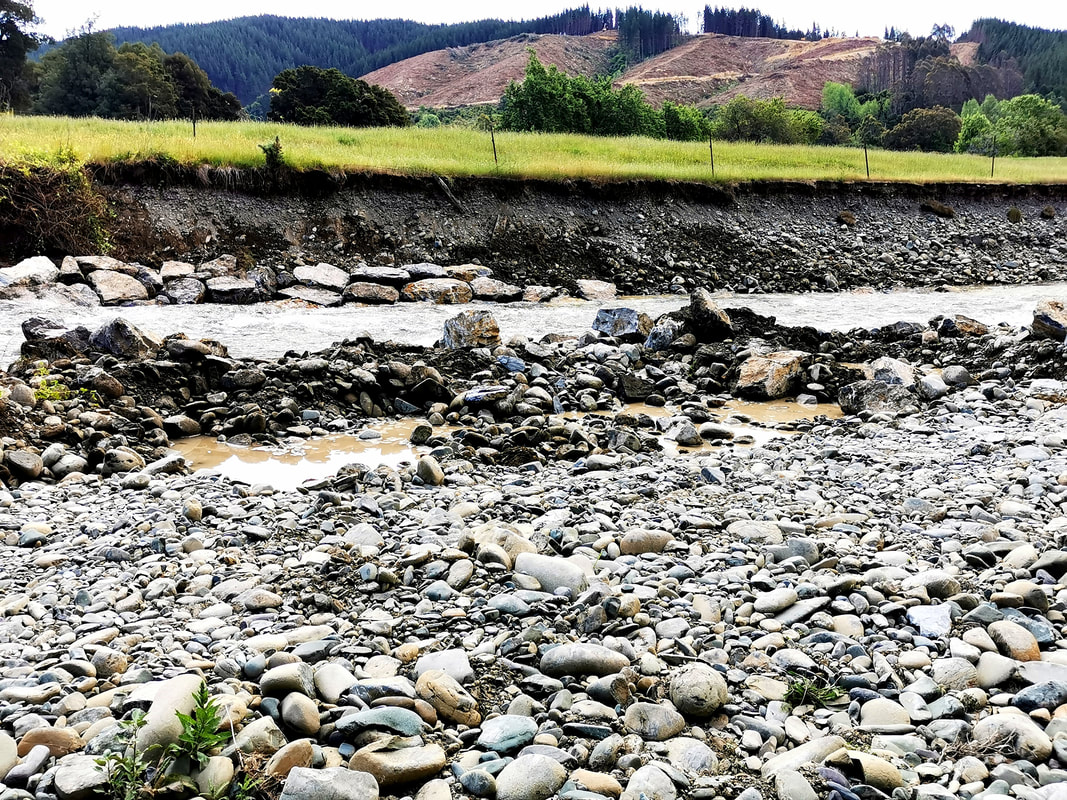
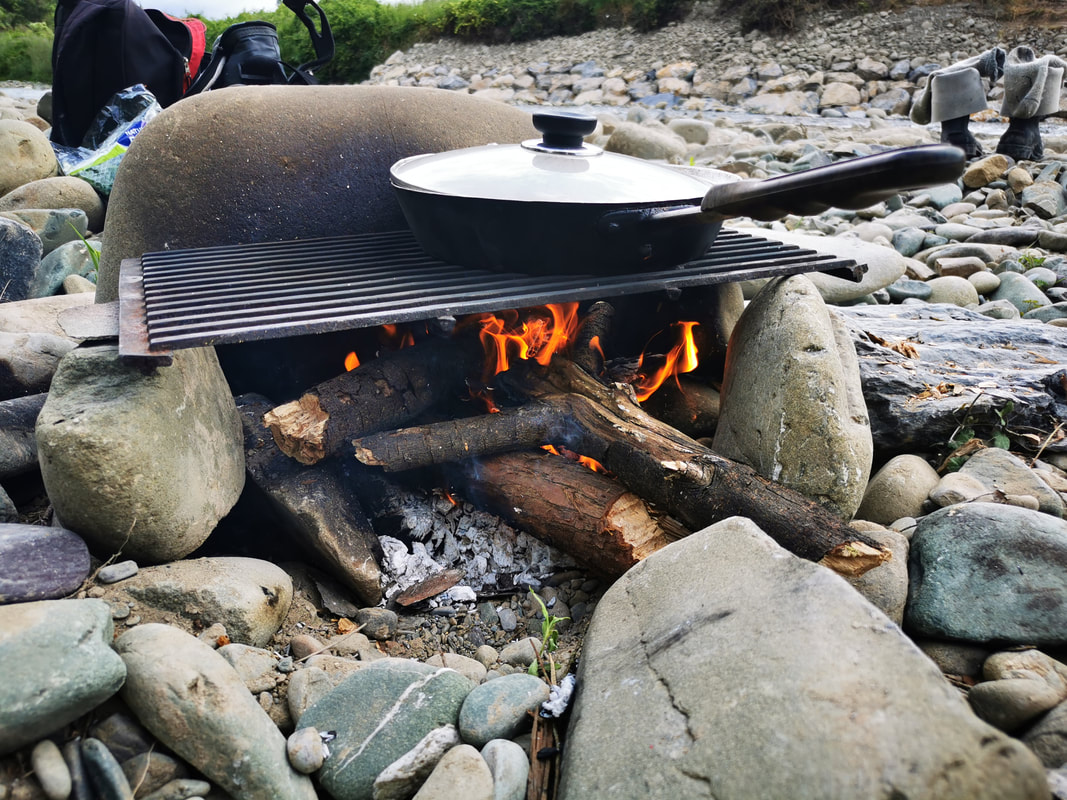
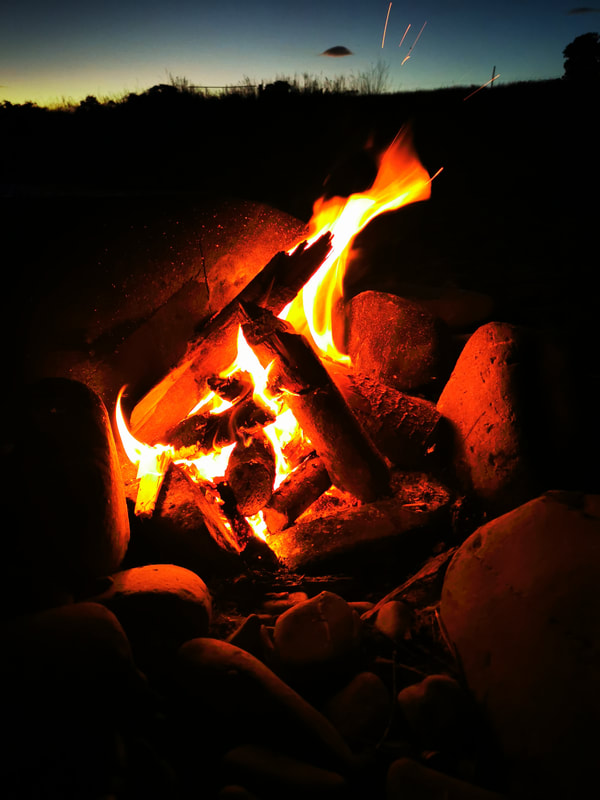
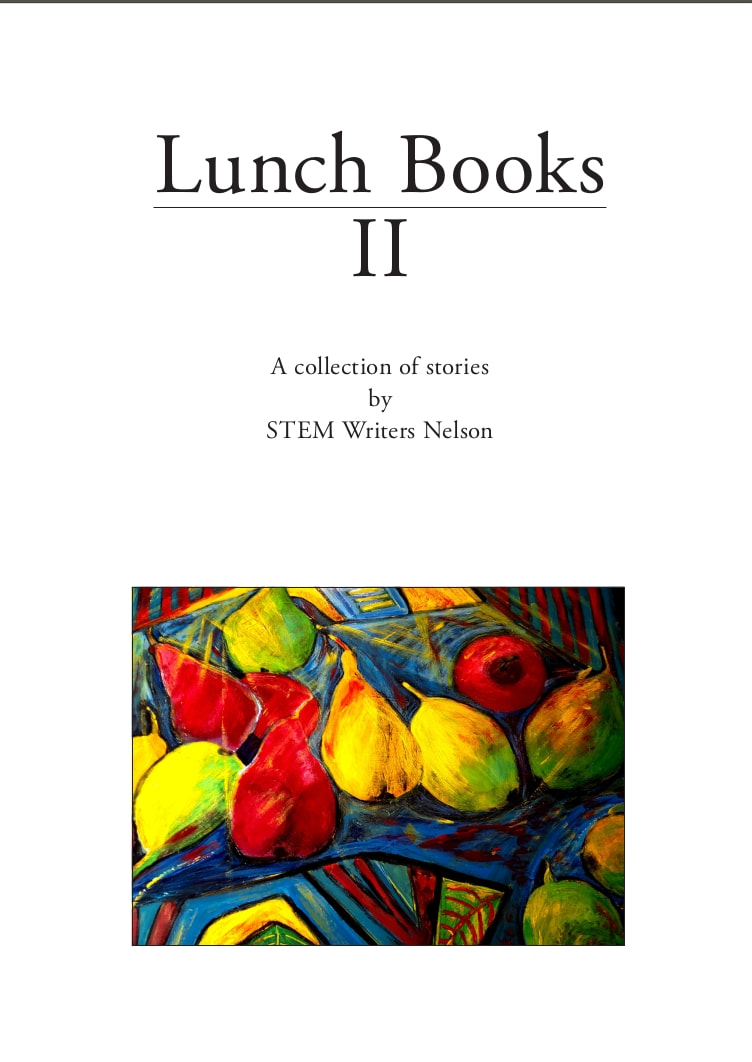
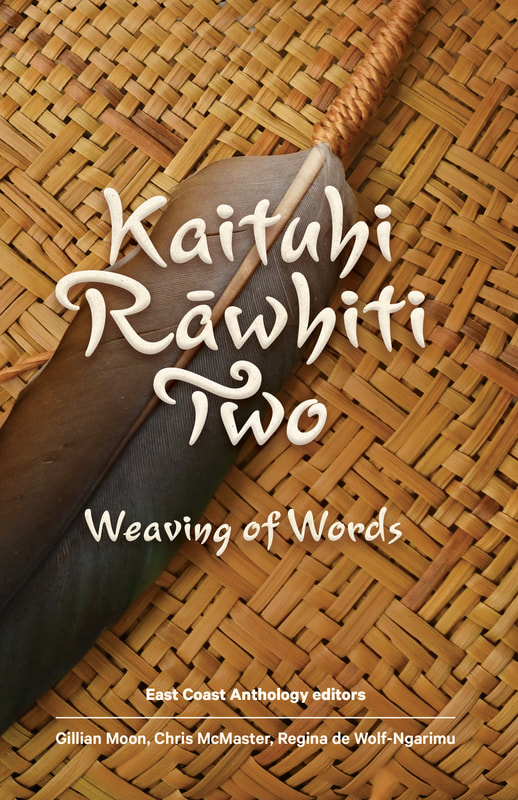
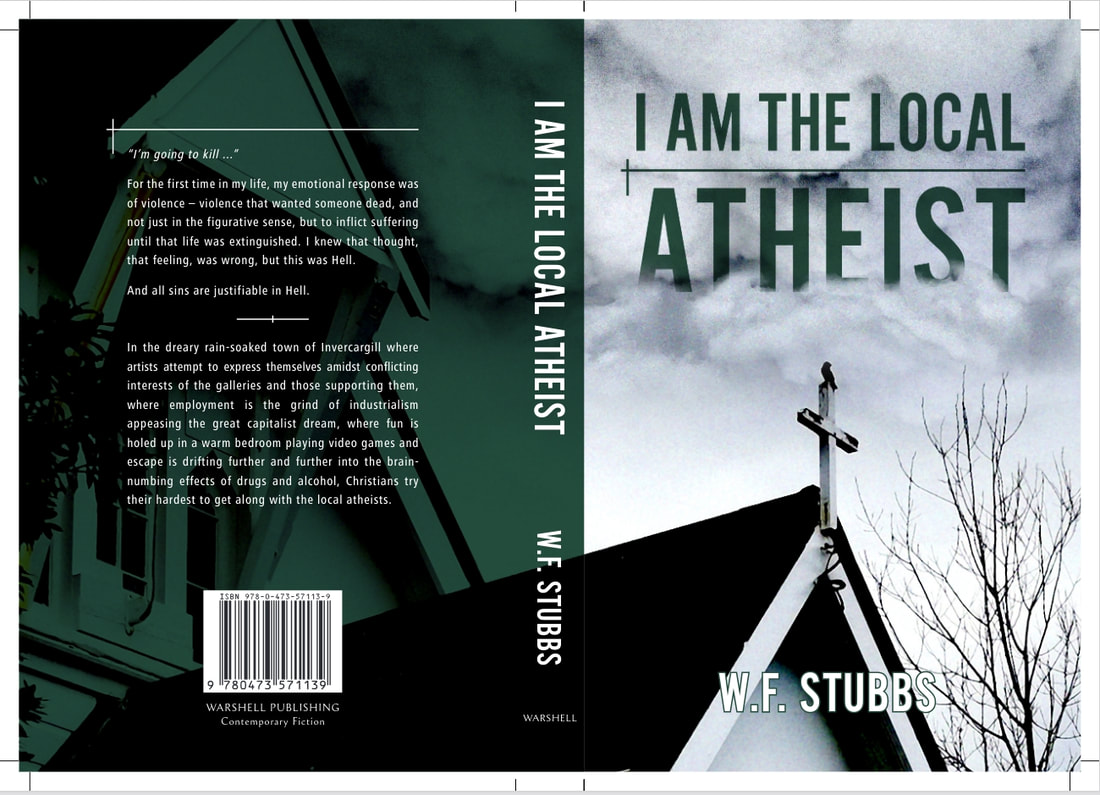
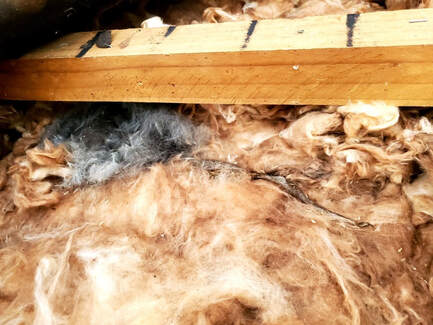
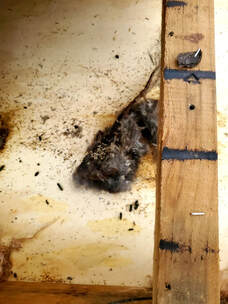
 RSS Feed
RSS Feed